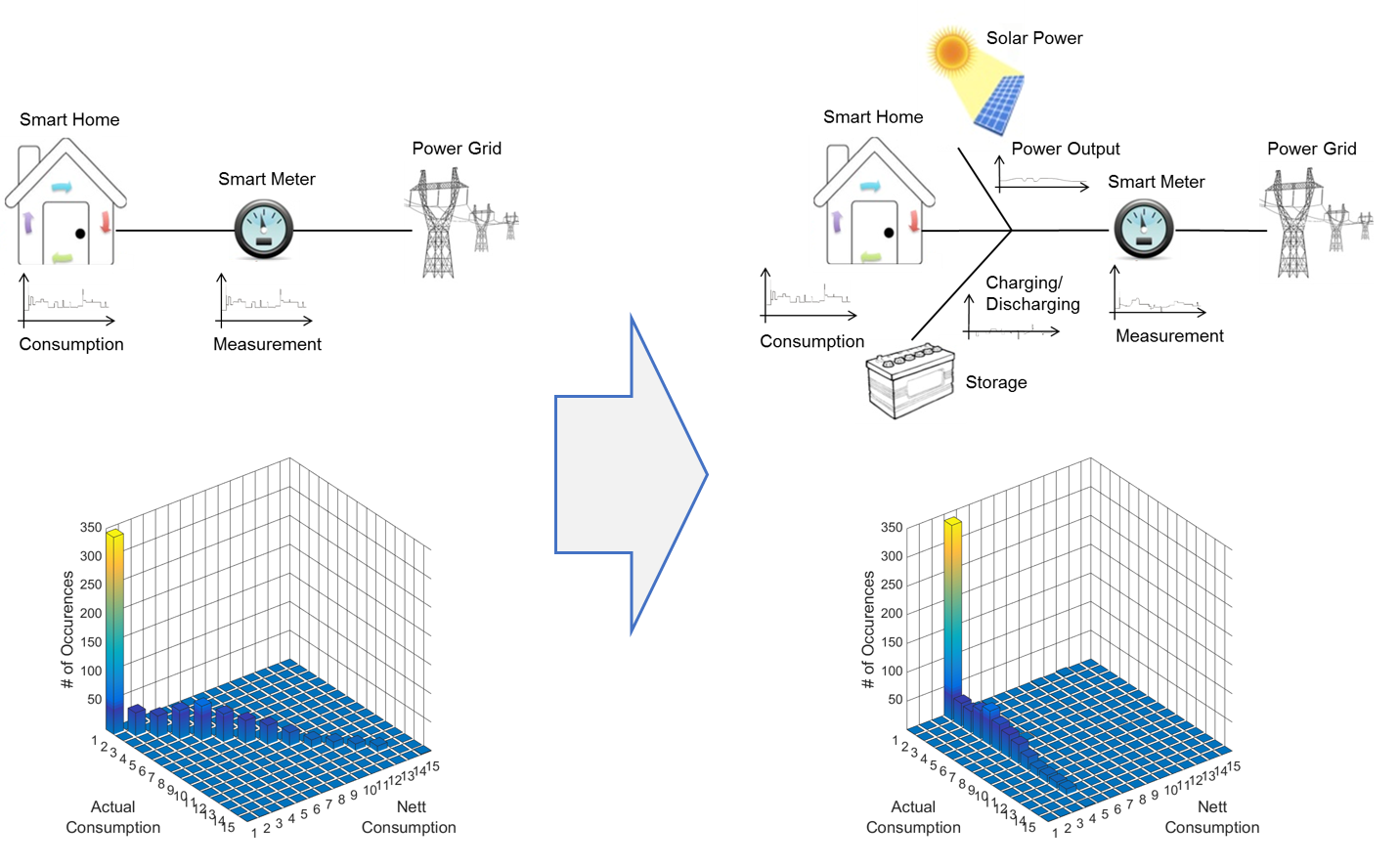Protecting Consumer Privacy in the Age of the Smart Meter
The advent of the smart meter in electricity grids opens the door to new grid management opportunities. However, information derivable from the resultant high-resolution data raise concerns regarding consumer privacy. Using energy storage and local generation, this project aims to protect consumer privacy, while preserving the benefits of smart meters.
Globally, smart meters are replacing traditional electromechanical electricity meters, providing grid operators the possibility of better monitoring, managing, and controlling their power grids. These modern meters measure and record consumption data at high-resolution, allow two-way communication, and are capable of remote operation; extending the industrial Internet-of-Things to power distribution grids.
By analysing the data made available by smart meters, detailed information regarding consumer behaviour such as home occupancy state, lifestyle patterns, and demographic profile, can be derived. While enabling opportunities for various value-added services, this also poses privacy risks for the consumers involved, who might not be at liberty to “opt-out”.
Privacy protection afforded by government regulation, and cybersecurity-measures, e.g. privacy laws, data encryption and aggregated meter-reading, fall short if one considers that utility networks or their proxies are not trustworthy or vulnerable to cyber-attacks. The COPES project aims to develop new approaches in protecting consumer privacy by altering their energy consumption profiles without sacrificing the benefits of smart meters. One solution is through an inherently-random distortion of a consumer’s actual energy consumption by employing local energy storage and generation external page [1]. Challenges remain in making such an approach computationally tractable, and in identifying the trade-offs between privacy and grid efficiency.
This project is funded by the Swiss National Science Foundation through the European CHIST-ERA initiative, and conducted in collaboration with the KTH Royal Institute of Technology, Imperial College London, and the French Institute for Research in Computer Science and Automation (Inria).
The ESC member involved in this project is Prof. Gabriela Hug head of the Power Systems Laboratory (PSL).
The scientific field of the Power Systems Laboratory comprises analysis and design of electric and integrated energy systems including their planning, design and operation.
Further information regarding consumer centric privacy in smart energy grids copes is available here.
